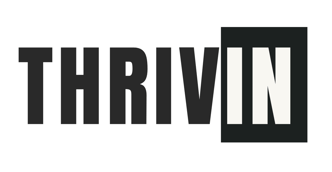The Future of Work: Navigating Remote and Hybrid Work Environments
THE FUTURE OF BUSINESS
THRIVIN
2/16/20243 min read


In recent years, the way we work has undergone a significant transformation. The rise of technology and the increasing demand for flexibility have led to the emergence of remote and hybrid work environments. As companies embrace these new models, it is crucial to understand the evolving landscape and discover best practices for effectively managing distributed teams, maintaining productivity, and fostering a cohesive company culture.
The Rise of Remote and Hybrid Work
Gone are the days when employees were confined to traditional office spaces from 9 to 5. With the advent of high-speed internet, cloud-based tools, and communication platforms, remote work has become a viable option for many professionals. The COVID-19 pandemic further accelerated this trend, forcing companies to adopt remote work practices on a large scale.
Remote work allows employees to work from any location, providing them with the flexibility to manage their personal and professional lives more effectively. It eliminates the need for long commutes and offers a better work-life balance. On the other hand, hybrid work combines remote work with occasional in-office work, providing the benefits of both worlds.
Managing Distributed Teams
Managing a distributed team comes with its own set of challenges. However, with the right strategies and tools in place, it is possible to overcome these challenges and create a productive work environment.
Clear Communication
Effective communication is the cornerstone of successful remote and hybrid teams. Employers should establish clear communication channels and ensure that all team members have access to the necessary tools and platforms. Regular check-ins, video conferences, and instant messaging platforms can help bridge the gap and foster collaboration.
Goal Setting and Accountability
Setting clear goals and expectations is crucial when managing distributed teams. Employees should have a clear understanding of their responsibilities and deadlines. Regular check-ins and performance evaluations can help track progress and ensure accountability.
Flexible Work Policies
Flexibility is one of the main advantages of remote and hybrid work. Employers should establish flexible work policies that allow employees to manage their time effectively. This could include flexible working hours, compressed workweeks, or the option to work from different locations.
Maintaining Productivity
One common concern with remote and hybrid work is the potential decrease in productivity. However, with the right strategies and support, companies can maintain and even enhance productivity in flexible work environments.
Establishing a Routine
Having a consistent routine is essential for remote and hybrid workers. Establishing a dedicated workspace, setting regular working hours, and following a daily schedule can help maintain focus and productivity.
Providing the Right Tools
Equipping remote and hybrid teams with the necessary tools and technology is crucial. Cloud-based collaboration tools, project management software, and video conferencing platforms enable seamless communication and collaboration.
Encouraging Work-Life Balance
Remote work can blur the lines between work and personal life. Employers should encourage employees to establish boundaries and prioritize self-care. Promoting a healthy work-life balance can prevent burnout and increase overall productivity.
Fostering a Cohesive Company Culture
Building a strong company culture is essential, regardless of the work environment. In remote and hybrid settings, it becomes even more important to ensure that employees feel connected and engaged.
Virtual Team Building Activities
Organizing virtual team building activities can help foster a sense of camaraderie among remote and hybrid teams. Virtual happy hours, team challenges, and online games provide opportunities for employees to connect on a personal level.
Regular Team Meetings
Regular team meetings, both online and in-person, can help maintain a sense of unity and alignment. These meetings provide a platform for sharing updates, discussing challenges, and celebrating achievements.
Recognizing and Rewarding Achievements
Recognizing and rewarding employees' achievements is crucial for maintaining motivation and engagement. Whether it's a simple thank you message or a formal recognition program, acknowledging employees' contributions goes a long way in building a positive company culture.
Conclusion
The future of work is undoubtedly moving towards remote and hybrid models. By understanding the evolving landscape and implementing best practices, companies can effectively manage distributed teams, maintain productivity, and foster a cohesive company culture. Clear communication, goal setting, flexibility, and a focus on employee well-being are key to thriving in flexible work environments. Embracing the future of work is not only beneficial for companies but also for employees who seek a better work-life balance and increased flexibility.
Hours
Mon - Sat 24 Hours
Closed Sunday & Holiday
Contact Us


This site is not a part of the FaceBook website or FaceBook INC. Additionally, this site
is NOT endorsed by FaceBook in ANY WAY. FACEBOOK is a trademark of FaceBook INC.
All Rights Reserved © THRIVIN
| Contact Support| Terms | Privacy Policy| Disclaimer | Refund Policy
